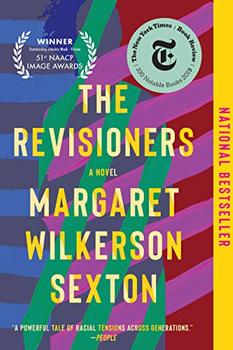Summary | Excerpt | Reviews | Beyond the book | Read-Alikes | Genres & Themes | Author Bio

A dazzling debut about family, home, and grief.
The Floating World takes readers into the heart of Hurricane Katrina with the story of the Boisdorés, whose roots stretch back nearly to the foundation of New Orleans. Though the storm is fast approaching the Louisiana coast, Cora, the family's fragile elder daughter, refuses to leave the city, forcing her parents, Joe Boisdoré, an artist descended from a freed slave who became one of the city's preeminent furniture makers, and his white "Uptown" wife, Dr. Tess Eshleman, to evacuate without her, setting off a chain of events that leaves their marriage in shambles and Cora catatonic - the victim or perpetrator of some violence mysterious even to herself.
This mystery is at the center of C. Morgan Babst's haunting, lyrical novel. Cora's sister, Del, returns to New Orleans from the life she has tried to build in New York City to find her hometown in ruins and her family deeply alienated from one another. As Del attempts to figure out what happened to her sister, she must also reckon with the racial history of the city, and the trauma of destruction that was not, in fact, some random act of God, but an avoidable tragedy visited upon New Orleans's most helpless and forgotten citizens.
The Floating World is the Katrina story that needed to be told - one with a piercing, unforgettable loveliness and a nuanced understanding of this particular place and its tangled past, written by a New Orleans native who herself says that after Katrina, "if you were blind, suddenly you saw."
The hurricane is an effective backdrop and metaphor for life's smaller tragedies as experienced by the Boisdoré family, the dissolution of a marriage, a parent's slow drift into dementia, the inability to protect a loved one who is seemingly too fragile for the capricious world. If this all sounds astonishingly bleak, it is. Babst really piles on the human misery, and for some readers it will be too much. There is no "happy" ending for these characters, at least not now, but there could be, and that's left to the reader to imagine. The fact that they go on, that they endure, is something...continued
Full Review
 (709 words)
(709 words)
(Reviewed by Lisa Butts).
New Orleans was, and is, a city with a majority African-American population (nearly 67% in 2005), and the racial implications of the government's response to Hurricane Katrina have come to define the way many people think of the storm. 68% of the storm's nearly 700 victims were black, as were an overwhelming number of those whose homes were destroyed and who sought refuge in the Superdome shortly after the storm made landfall. The areas most susceptible to flooding were (and are still) largely populated by poor African Americans, as was the case with one of the hardest hit neighborhoods, the Lower Ninth Ward. Many residents were unable to evacuate in advance of the storm due to a lack of financial resources, and because traffic out of the ...

If you liked The Floating World, try these:

by Terah Shelton Harris
Published 2024
An explosive and emotional story of four siblings―each fighting their own personal battle―who return home in the wake of their father's death in order to save their family's home from being sold out from under them, from the author of One Summer in Savannah.

by Margaret Wilkerson Sexton
Published 2020
Following her National Book Award–nominated debut novel, A Kind of Freedom, Margaret Wilkerson Sexton returns with this equally elegant and historically inspired story of survivors and healers, of black women and their black sons, set in the American South.